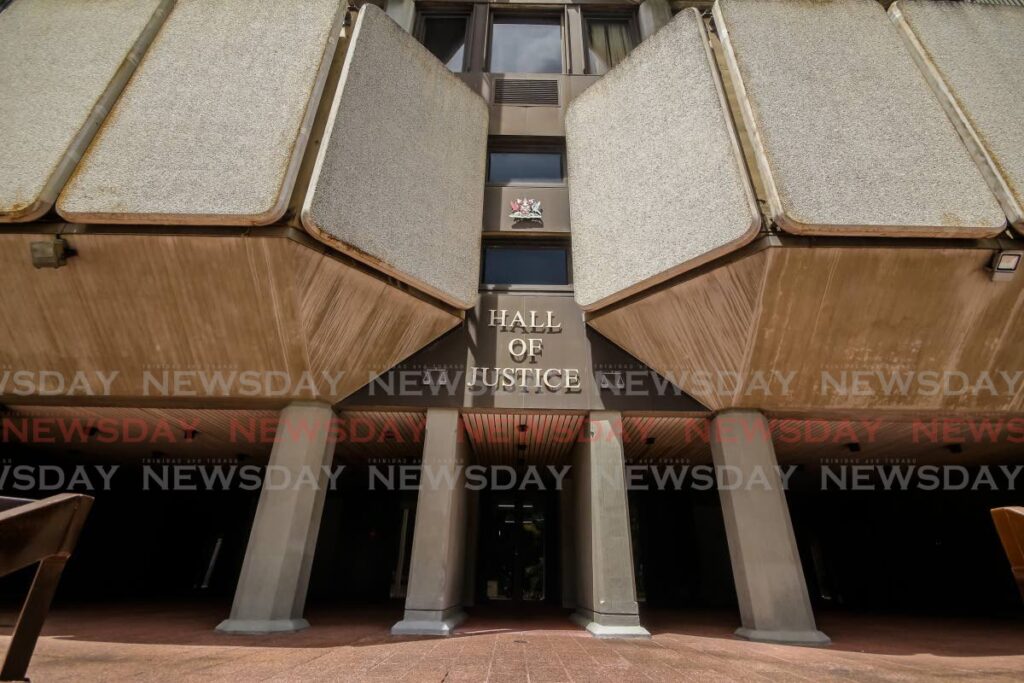[UPDATED] Privy Council: Archie-led judicial commission unlawfully forced Ayers-Caesar to resign as judge

The path is now clear for Marcia Ayers-Caesar to reclaim her position as a High Court judge.
In a ruling on March 24, the Privy Council affirmed that Ayers-Caesar was wrongfully pressured into resigning by the Judicial and Legal Service Commission (JLSC), led by Chief Justice Ivor Archie, declaring her removal unconstitutional.
The ruling restores her judicial status and entitles her to the salary she would have received since her appointment on April 12, 2017.
Asked if she intended to return to the bench after the nearly eight-year battle, her attorney Ramesh Lawrence Maharaj, shortly after the ruling was made public, said, “She would not, as a judge, make a public statement.”
Monday’s ruling upheld a decision by the Court of Appeal that the JLSC acted beyond its authority in coercing Ayers-Caesar into resigning.

“Pressurising a judge to resign by holding out the threat of disciplinary proceedings, as the commission did in the present case, circumvents the constitutional safeguards laid down in section 137 and undermines their purpose,” Lord Robert Reed, president of the Judicial Committee of the Privy Council, wrote in the unanimous ruling.
Also presiding on the JLSC’s appeal were Lords Hodge, and Stephens, as well as Lady Rose and Lady Simler,
Ayers-Caesar briefly held office as a High Court judge from April 12 to April 27, 2017. She was the first woman to be appointed chief magistrate before her elevation.
Within days of her swearing-in, concerns surfaced regarding the number of cases she left unresolved in the magistrates’ court.
According to the evidence, Archie was unaware of the full extent of the backlog when he approved her elevation and she reportedly assured him that her pending caseload was minimal, consisting primarily of “paper committals” that could be reassigned without significant delays. However, it soon emerged that she had left behind at least 52 part-heard cases, many of which involved oral evidence and had been ongoing for years. The revelation led to public outcry, with defendants, attorneys, and victims expressing frustration that their cases would have to be restarted from scratch.
On the day Archie met with Ayers-Caesar to discuss the situation - April 26, 2017 - there was a fracas involving prisoners accused of murder at the Port of Spain magistrates court where she presided. They protested the adjournment of their cases and the likelihood they would have to restart. With the full extent of her backlog revealed, the JLSC convened an emergency session the next day to discuss the imbroglio, Meanwhile, the legal fraternity criticised the appointment process, questioning why the JLSC failed to conduct due diligence. The Law Association also raised concerns about the consequences of her taking up the appointment without having completed her cases.
At the emergency meeting, the JLSC concluded the situation was serious enough to trigger disciplinary proceedings and was reportedly concerned her failure to disclose the full extent of her backlog had created a crisis that risked undermining public confidence in the judiciary.
Records of the meeting’s minutes said Archie was of the view that Ayers-Caesar’s position had become untenable.
Instead of initiating a formal inquiry under section 137 of the Constitution, which governs the removal of judges, the JLSC gave Ayers-Caesar the option to resign or face possible removal proceedings.
She submitted her resignation later that day but maintained she did so under pressure.
While the ruling found in Ayers-Caesar’s favour, it did not absolve her of responsibility for her actions leading up to the crisis. The judges acknowledged that her failure to fully disclose the extent of her backlog was “capable of falling within the scope of section 137,” but maintained any disciplinary proceedings against her should have followed the correct constitutional process.
“The allegations made against the claimant might have been capable of rebuttal, in whole or in part, if she had been given an opportunity to respond.
“The claimant was not given that opportunity,” the ruling said, holding that the JLSC’s actions were unlawful because of procedural unfairness.
“If a fair procedure is followed by the commission so that the judge is given notice of the complaint or allegations in question and is allowed to respond, then the judge will normally have the opportunity to take advice, and to resign if he or she considers that appropriate before formal disciplinary proceedings are begun.”
The ruling also found that Ayers-Caesar’s resignation was not truly voluntary, as it was obtained under duress.
“What the Chief Justice told the claimant placed her under pressure to resign, as the implicit alternative of a disciplinary enquiry – effectively the equivalent of impeachment proceedings” – would be damaging to her professional and personal reputation and her standing among her colleagues.
“It is unsurprising that she responded by agreeing to resign.”
It also said the JLSC’s offer - to return to the magistracy as an alternative to disciplinary proceedings - was beyond its role and “therefore unlawful.” as it was inconsistent with the section 137 scheme which requires an investigation by a tribunal and, if necessary, a referral to the Privy Council.
The ruling also emphasised that the Chief Justice, as chair of the Commission and the source of the complaints, should not have personally handled the matter.
“The board should make it clear that the commission acted as it did out of an understandable desire to resolve the practical problem which it understood to exist as a result of the part-heard cases having to start again before another magistrate.”
It noted that a judge, when faced with a possible section 137 investigation, should have access and advice from a senior member of the judiciary.
“However, the provision of such advice is no part of the role of the commission. Nor, in circumstances where the commission is engaged in its functions under section 137, can it be part of the role of the Chief Justice.”
The ruling said Archie should have delegated to another judge.
“In the present case, it appears that the Chief Justice did not keep separate in his dealings with the commission and with the claimant the three different roles in which he was concerned in the matter: his role as chair of the commission, his role as Chief Justice responsible for the efficient operation of the court system, and his pastoral role as an experienced senior judge meeting a more junior colleague to address a difficult and potentially distressing situation that had arisen.”
The Privy Council also rejected the JLSC’s argument that it was not responsible for her decision to resign.
“The argument is based principally on the contention that, when the Chief Justice told the claimant what the
commission had decided in relation to disciplinary proceedings, he was not acting on its behalf, but exceeded his authority.”
“The issue turns on an analysis of the evidence, which was dealt with fully by the Court of Appeal. We agree with their reasoning, and there is nothing we can usefully add. “In these circumstances, the board concludes, in agreement with the Court of Appeal, that the commission brought about the claimant’s resignation.”
When the Appeal Court ruled on October 12, 2023, the panel — Justices of Appeal Allan Mendonca, Nolan Bereaux, and Alice Yorke-Soo Hon —ordered her resignation letter removed from the President’s records and directed that she be compensated for violating her constitutional rights. This would run into the millions with just about $3.5 million in salary arrears alone.
Ian Benjamin, SC, Ian Roach and Tamara Toolsie represented the JLSC while Peter Knox, KC, appeared with Maharaj, Ronnie Bissessar, SC, Robert Strang and Varin Gopaul-Gosine for Ayers-Caesar.
This story has been updated to include additional details. See original post below.
THE Judicial and Legal Service Commission, chaired by Chief Justice Ivor Archie, has lost its challenge of a Court of Appeal decision that found the commission acted unlawfully by pressuring Marcia Ayers-Caesar to resign as a High Court judge in 2017. The Appeal Court ruled on October 12, 2023.
On March 24, the Privy Council declared Ayers-Caesar’s forced resignation in April 2017 was unlawful and violated her constitutional protections.
The Court of Appeal, in its ruling, had unanimously declared the JLSC’s actions illegal and its pressure on Ayers-Caesar to resign unconstitutional. The panel — Justices of Appeal Allan Mendonca, Nolan Bereaux, and Alice Yorke-Soo Hon — held that Ayers-Caesar never legally ceased to be a puisne judge since her resignation was unlawfully obtained.
The judges ordered her resignation letter removed from the President’s records and directed that she be compensated for violating her constitutional rights.
Ayers-Caesar, appointed as a High Court judge on April 12, 2017, resigned just 15 days later following public backlash over 53 unfinished cases from her time as a magistrate.
She claimed she was forced to resign under threat that the President would otherwise revoke her appointment.

Comments
"[UPDATED] Privy Council: Archie-led judicial commission unlawfully forced Ayers-Caesar to resign as judge"